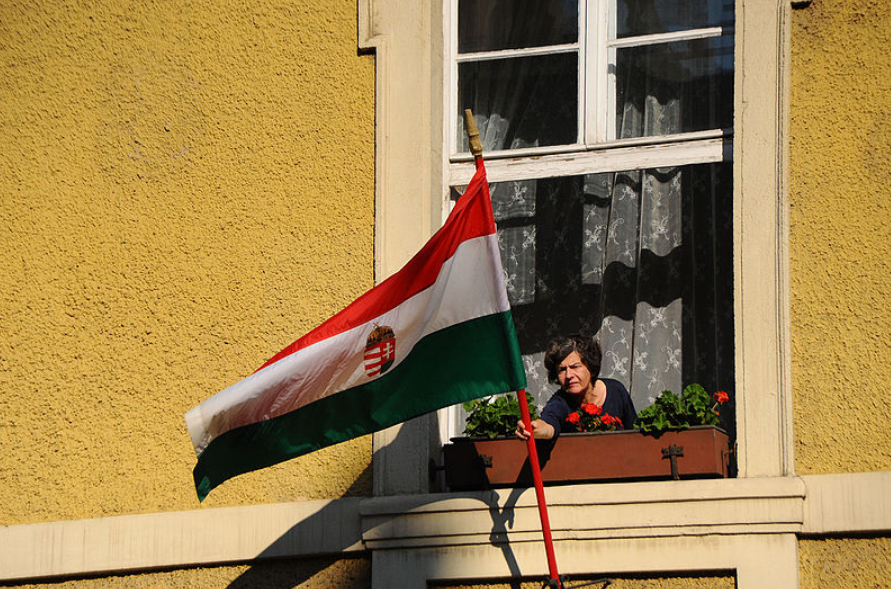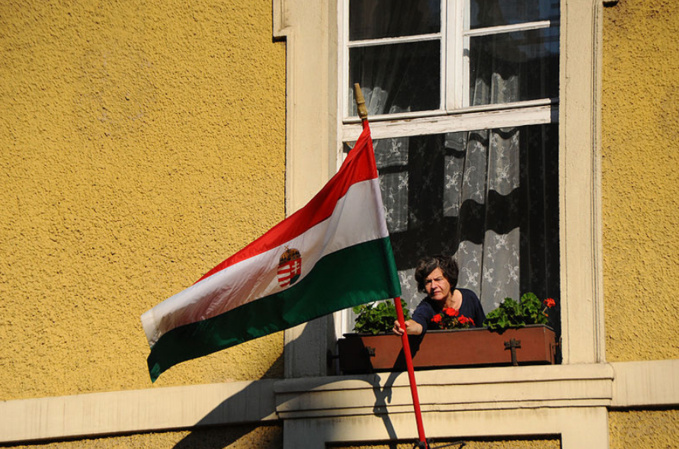The countries of Central and Eastern Europe are not in Brussels’ good books in the question of protection and development of democracy. However, in relation to the economy, they are far ahead of their Western counterparts. According to the results of the last year, the highest growth rate of the economy in Europe was shown by Romania - 6.4%, whose economy has been growing for seven consecutive years. The economies in Poland, the Czech Republic and Hungary also developed faster in 2017 than the overwhelming majority of Western European countries did. In general, the European Commission (EC) says that of the 12 European countries, whose economy grew at least 3% last year, nine are in eastern Europe.
People returning to the east of the continent after a few years of absence see new roads, modern buildings and many traces of investment from abroad. Low unemployment spurs consumer confidence in the future and raises demand in domestic markets. Everything is in order as Brussels regularly sends substantial grants.
Low unemployment is one of the least obvious achievements. In some countries, it even becomes a problem. In Hungary, for example, there is now a real shortage of labor due to the high demand for workers and Hungarians immigrating for earnings to the west of the continent. The largest economy in the region, Poland, still manages to avoid a shortage of labor due to its imports, mainly from Ukraine.
Undoubted successes in the economy strengthen the ambitions of the leadership of Eastern European countries. They aspire to increase their political weight and authority of their states. Eastern Europe wants to play a more important role in the destinies of the European Union.
Hungarian Prime Minister Viktor Orban said in January that back in 2004, when 8 countries of Central and Eastern Europe joined the EU, no one could predict that they would make such a contribution to the power of a united Europe.
"This is the fastest growing region of the European Union, without which it would be impossible today to talk about any serious development of the economy of the whole continent," Orban underscored, adding that the region would like to play an appropriate role in discussing the future of the continent.
Of course, one can argue that, despite rapid growth, the total weight of the economies of Eastern European countries in the pan-European economy is still small. However, Warsaw believes that economic success has already enabled Poland to play a more prominent role in the life of the continent.
"Poland's achievements in the EU are undoubtedly influenced by the achievements in the economy," says European Affairs Minister Konrad Szymanski.
The desire to play a more significant role in the life of a united Europe is understandable if we recall that Brussels has already decided to resort to Article 7 of the EU Charter in relation to Poland. The article allows the European Commission to punish EU members who violate European laws and regulations. The European Parliament intends to resort to Hungary to the same extent. The EC also has serious questions to other countries in Central and Eastern Europe.
Brussels, Paris and Berlin criticize Warsaw and Budapest, but they are forced to take into account the fact that success in the economy increases the popularity of the Polish and Hungarian authorities. This means that too much pressure on the leaders of Poland, Hungary and other Eastern European countries can have the opposite effect and lead to an increase in anti-European sentiments in the east of the continent.
However, skeptics believe that the region will not be able to maintain the same high rates of economic development in the medium term, not to mention the farther future. The problems are clearly seen in the sphere of investment. The Polish, Hungarian and Romanian authorities are investing heavily in large infrastructure projects that are very popular with their voters. Yet, such large expenditures may provoke serious pressure on the budgets of the Eastern European countries.
Authorities often resort to measures that liberal economists will take to be openly populist. In Poland, for example, the government recently introduced new payments to families and reduced the age of retirement, and in Hungary, authorities give pensioners cash gifts. They also increased child benefits and began to issue loans for the purchase of houses. Last year, Bucharest sharply increased the salaries of civil servants. Moreover, the increase is calculated in double digits.
Infrastructure projects in the east of the continent are increasingly affecting the financial system of the entire EU. In Poland, for example, the source of more than half of public investment in 2014-17 was Brussels, while in Romania the share of EU subsidies in investments exceeds 60%. At the same time, the contributions of Eastern European countries are still considerably less than grants. It is estimated, for example, that while every Hungarian spends an average of 0.31 euros per day on the European Union, it receives 0.99 euros in exchange from Brussels.
Yet, business of the strongest countries of the European Union has received huge benefits from the accession of the Eastern European countries. The fact that something is coming back to them through budgets is quite fair. Victor Orban boldly predicts that the Visegrad Four, the unification of Poland, Hungary, Slovakia and the Czech Republic, will eventually become one of the largest contributors to the EU budget.
"By 2030," he said recently, "the EU will mainly be financed by Germany and the Visegrad Four."
Capitals of Eastern European countries are urged not to exaggerate the importance of subsidies from Brussels, but on the other hand, they want to receive them in the future. Otherwise, they may seek money on the side.
"If the EU cannot finance our infrastructure," Orban said openly, "we will turn to China for help."
People returning to the east of the continent after a few years of absence see new roads, modern buildings and many traces of investment from abroad. Low unemployment spurs consumer confidence in the future and raises demand in domestic markets. Everything is in order as Brussels regularly sends substantial grants.
Low unemployment is one of the least obvious achievements. In some countries, it even becomes a problem. In Hungary, for example, there is now a real shortage of labor due to the high demand for workers and Hungarians immigrating for earnings to the west of the continent. The largest economy in the region, Poland, still manages to avoid a shortage of labor due to its imports, mainly from Ukraine.
Undoubted successes in the economy strengthen the ambitions of the leadership of Eastern European countries. They aspire to increase their political weight and authority of their states. Eastern Europe wants to play a more important role in the destinies of the European Union.
Hungarian Prime Minister Viktor Orban said in January that back in 2004, when 8 countries of Central and Eastern Europe joined the EU, no one could predict that they would make such a contribution to the power of a united Europe.
"This is the fastest growing region of the European Union, without which it would be impossible today to talk about any serious development of the economy of the whole continent," Orban underscored, adding that the region would like to play an appropriate role in discussing the future of the continent.
Of course, one can argue that, despite rapid growth, the total weight of the economies of Eastern European countries in the pan-European economy is still small. However, Warsaw believes that economic success has already enabled Poland to play a more prominent role in the life of the continent.
"Poland's achievements in the EU are undoubtedly influenced by the achievements in the economy," says European Affairs Minister Konrad Szymanski.
The desire to play a more significant role in the life of a united Europe is understandable if we recall that Brussels has already decided to resort to Article 7 of the EU Charter in relation to Poland. The article allows the European Commission to punish EU members who violate European laws and regulations. The European Parliament intends to resort to Hungary to the same extent. The EC also has serious questions to other countries in Central and Eastern Europe.
Brussels, Paris and Berlin criticize Warsaw and Budapest, but they are forced to take into account the fact that success in the economy increases the popularity of the Polish and Hungarian authorities. This means that too much pressure on the leaders of Poland, Hungary and other Eastern European countries can have the opposite effect and lead to an increase in anti-European sentiments in the east of the continent.
However, skeptics believe that the region will not be able to maintain the same high rates of economic development in the medium term, not to mention the farther future. The problems are clearly seen in the sphere of investment. The Polish, Hungarian and Romanian authorities are investing heavily in large infrastructure projects that are very popular with their voters. Yet, such large expenditures may provoke serious pressure on the budgets of the Eastern European countries.
Authorities often resort to measures that liberal economists will take to be openly populist. In Poland, for example, the government recently introduced new payments to families and reduced the age of retirement, and in Hungary, authorities give pensioners cash gifts. They also increased child benefits and began to issue loans for the purchase of houses. Last year, Bucharest sharply increased the salaries of civil servants. Moreover, the increase is calculated in double digits.
Infrastructure projects in the east of the continent are increasingly affecting the financial system of the entire EU. In Poland, for example, the source of more than half of public investment in 2014-17 was Brussels, while in Romania the share of EU subsidies in investments exceeds 60%. At the same time, the contributions of Eastern European countries are still considerably less than grants. It is estimated, for example, that while every Hungarian spends an average of 0.31 euros per day on the European Union, it receives 0.99 euros in exchange from Brussels.
Yet, business of the strongest countries of the European Union has received huge benefits from the accession of the Eastern European countries. The fact that something is coming back to them through budgets is quite fair. Victor Orban boldly predicts that the Visegrad Four, the unification of Poland, Hungary, Slovakia and the Czech Republic, will eventually become one of the largest contributors to the EU budget.
"By 2030," he said recently, "the EU will mainly be financed by Germany and the Visegrad Four."
Capitals of Eastern European countries are urged not to exaggerate the importance of subsidies from Brussels, but on the other hand, they want to receive them in the future. Otherwise, they may seek money on the side.
"If the EU cannot finance our infrastructure," Orban said openly, "we will turn to China for help."



















